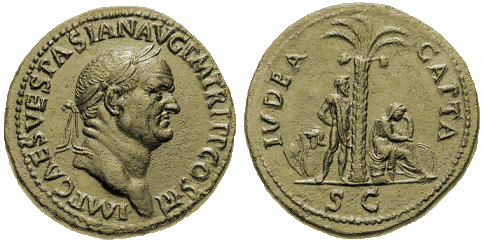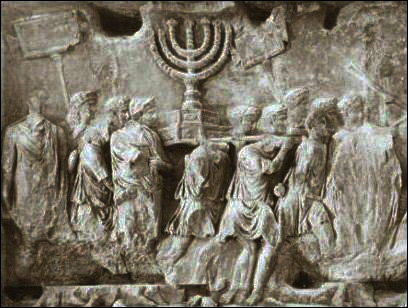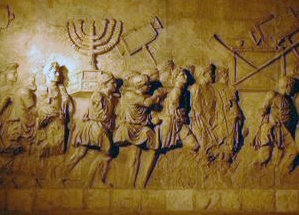Moreover, they acted and made others act without hatred or sadism.
To the American prosecutor Walton, who questioned him during his trial after the disaster, the SS Gruppenführer Otto Ohlendorf, Commander-in-Chief of Einsatzgruppe D, declared that a man ‘who showed pleasure in these executions was fired’,[1] which means that these executions were considered in high places, as well as in the ranks of the SS, as an unpleasant necessity; as a task to be accomplished without hesitation, certainly, but without joy as without disgust, with serene indifference, in the interest of the German Reich and soon Pan-Aryan, which was also ‘the interest of the Universe’.[2] In the mind of the Supreme Leader, Adolf Hitler, the expansion and transformation of the Reich was to initiate a global ‘recovery’ in the traditional sense of the word.
______ 卐 ______
Editor’s note: Perhaps it is worth confessing that, in my fantasies, I imagine the ‘extermination of the Neanderthals’ without an atom of sadism, as in the 1979 James Bond film Moonraker. Of course: the film is Hollywood bullshit like all the others. The billionaire Hugo Drax transported several dozen ‘genetically perfect’ (lol!) young men and women of different races, including blacks (!) to a space station. They would live there until Earth was cleansed and their descendants would be the seed of a ‘new master race’.
(Above, Hugo Drax, Moonraker’s villain, playing the piano at his mansion.) Drax reveals his plan to destroy human life by launching 50 giant balloons that would disperse a nerve gas into Earth’s atmosphere that kills humans instantly (animal species are unaffected). But Bond uses a laser-armed device to destroy some of the launched balloons.
I use the plot of that silly movie just to show that my hatred of Neanderthals is as cold and intellectual as Drax’s. Even with my exterminationist hatreds I would fulfil the 4 words, ‘avoid all unnecessary suffering’ when implementing final solutions to the human (or rather, Neanderthal) problem.
Savitri continues:
______ 卐 ______
But if, in practice, a ‘People’s Commissar’, a Slavic Communist,[3] was killed as an ‘enemy of the Reich’, as well as a Jew, it remains true that there was a nuance or difference in meaning between these two actions. The Slavic Communist was—just like any Communist as well as many non-Communists such as those nationalists of the Polish intelligentsia who were also shot by Einsatzgruppen commandos—considered personally dangerous. By killing him we eliminated an enemy, real or supposed. (There was no time to examine each individual case and to see whether, perhaps, some valuable individuals might not, in the long run, have been led to join the new German-dominated Europe.)
The Jew, in addition to the danger he could represent, and often did represent, personally, was considered dangerous in his very essence: because he belonged to the people whose historical role was to spread untruths and counter-values in the world: a source of subversion, a source of ‘anti-nature’; the ‘chosen’ people of the Powers Below (the exact antithesis of the Aryan and especially of the German), without whom neither Marxism, nor Jacobinism, nor Christianity—that ‘Bolshevism of Ancient World’, as the Führer so aptly put it—nor any of the forms of the superstition of ‘man’ and his ‘happiness’ at any price, would have come into being.
He symbolised the victory of the Dark Age, which the initiates know is inevitable, but which they strive to postpone as long as possible, if they have a fighting soul. His elimination was, even more than that of the people of all races who had believed his lies, a challenge to the Forces of Disintegration. For he was the ‘unclean’ element. In more than one speech, Himmler likened it to the parasitic insects whose presence degrades the most beautiful hair, the most robust body. And he saw its suppression ‘not as a matter of ideology, but as a matter of cleanliness’.
And yet… If there is an order to the leaders of the Einsatzgruppen to mercilessly eliminate ‘the enemies of National Socialism’ (including the Jews, of course), there is no German document proving that the ‘final solution of the Jewish problem’ meant the ‘total physical liquidation of the Jews’.
Consider the famous Protocol of the Wannsee Conference of January 18, 1942 (whose authenticity is questioned by an author as impartial as André Brissaud[4]) in the course of the trials set up after the war. With bad faith concerning the SS, the SD (Sicherheitsdienst), the Gestapo, etc., they translated as ‘extermination of the Jews in the German living space’ the sentence which actually means ‘repression of the Jews outside of German living space’ (Zurückdrängung der Juden aus dem Lebensraum des deutschen Volkes).[5]
It seems that, at first, it was only a question of ‘repression’ and not of indiscriminate extermination—and this, despite the anger of the Jews of the whole world, despite the resounding ‘declaration of war against the German Reich’ launched from New York at the beginning of August 1933 by Samuel Untermeyer, president of the ‘International Jewish Economic Federation to combat the Hitlerite oppression of Jews’ when there was still no oppression or persecution in Germany despite the call by Wladimir Jabotinsky, future head of the Jewish terrorist organisation Irgun Zwi Leumi, in the Jewish magazine Masha Rietsch of January 1934, for the ‘extermination of all Germans’.
_________
[1] Quoted in André Brissaud, Hitler and the Black Order, 1960 edition, p. 324.
[2] Bhagawad-Gîta, III, verse 25.
[3] Many of the People’s Commissars in Soviet Russia were Jews, but not all of them.
[4] Brissaud: Hitler and the Black Order (op cit.), p. 309.
[5] Quoted in full by Hans Grimm,Warum? Woher? Aber Wohin? 1954 edition, page 187.









